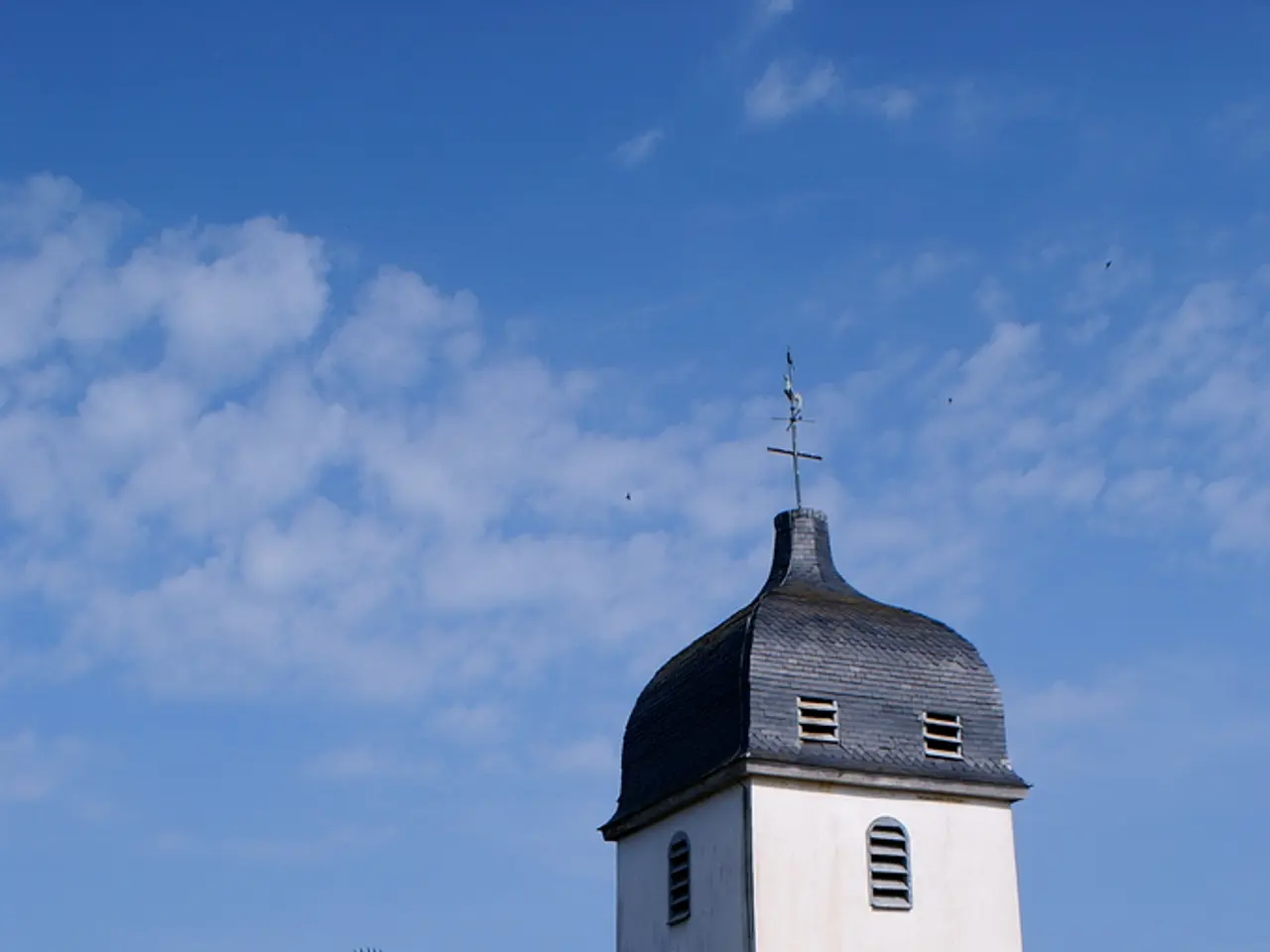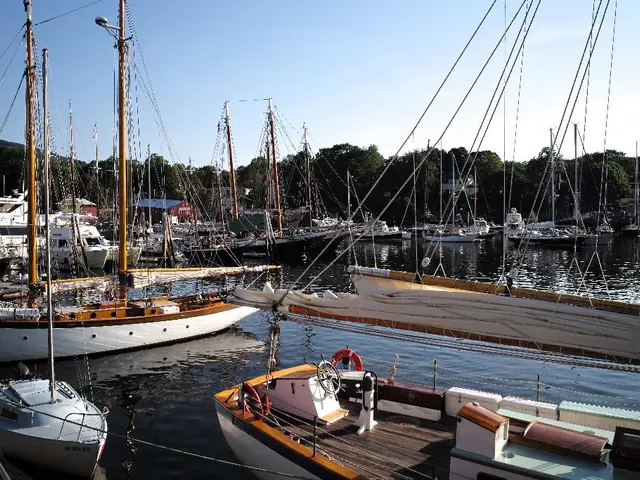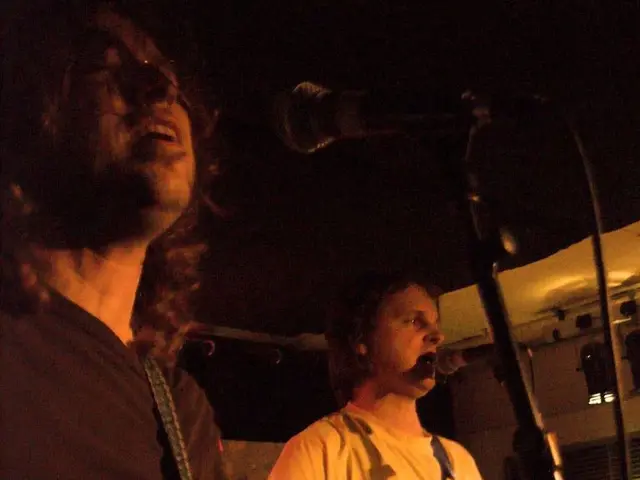Church Transition in Sweden - Understanding the Process
In the heart of Sweden, the 113-year-old Kiruna Church was carefully relocated a distance of approximately 5 kilometers (3 miles) to a new city center, marking a significant milestone in a long-term, large-scale urban move driven by the expansion of Europe's largest underground iron ore mine [1][2][4][5].
The church, a 600+ ton wooden building dating back to 1912, was first lifted off its foundations and placed on a specially constructed custom trailer - a multi-axle, heavy-duty lorry designed to carry the immense weight and preserve the structure's integrity during transport [2][3]. The move itself took place over two intense days, meticulously inching the church along a 5-kilometer winding Arctic road to its new location [2][3][5].
The process was a delicate operation, given the church's size (40 meters tall, 672 tonnes) and value as one of Sweden's most beloved wooden buildings. It was named "best building of all time built before 1950" in a public vote [1]. The moving process also involved significant cultural and community consideration, with a blessing by the church vicar and extensive public interest, including attendance by Sweden's King Carl XVI Gustaf, and live TV coverage from 30 cameras [1][3][4][5].
The relocation alone was a complex and costly operation, with the moving of the church estimated to cost around 500 million Swedish kronor (approximately $52 million USD). The mining company LKAB, which is financing the relocation project, is funding this operation as part of the broader 30-year town relocation initiative [4].
The project stems from the ongoing expansion of LKAB's iron ore mine, which has progressively deepened and destabilized the ground beneath Kiruna's original center, making the area unsafe. To protect residents and preserve valuable cultural heritage, the town, including the historic church and other buildings, has been undergoing a planned relocation to safer ground over two decades [1][2][4][5].
This is not an isolated case. Cities and buildings worldwide have to make way for dams, mines, or climate change. The relocation of an entire city on this scale is rare. The extraction front is moving deeper into the ground with every expansion, increasing the risk of cracks appearing in houses, roads, and pipelines.
Parallels can be drawn to Germany, where many villages in the Rhine coal mining area had to disappear due to the growing size of open-pit mines [6]. In Kiruna, large deposits of rare earths, crucial for future technologies such as wind turbines or electric motors, have been discovered [7].
As the world continues to develop, the need for such intricate relocation projects will likely increase. The Kiruna Church's relocation serves as a testament to engineering and cultural preservation, demonstrating what can be achieved when necessity meets innovation.
References: 1. BBC News. (2018, December 15). Sweden's Kiruna: The town that's moving to save itself. Retrieved from https://www.bbc.com/news/world-europe-46450538 2. The Local Sweden. (2019, May 11). Kiruna Church moves to new location. Retrieved from https://www.thelocal.se/20190511/kiruna-church-moves-to-new-location 3. The Guardian. (2019, May 11). Kiruna church moved to new location as Sweden's Arctic town relocates. Retrieved from https://www.theguardian.com/world/2019/may/11/kiruna-church-moved-to-new-location-as-swedens-arctic-town-relocates 4. The Local Sweden. (2019, April 19). Kiruna church move: How it's happening. Retrieved from https://www.thelocal.se/20190419/kiruna-church-move-how-its-happening 5. LKAB. (n.d.). Kiruna Move. Retrieved from https://www.lkab.com/en/kiruna-move/ 6. The Local Germany. (2018, August 29). Germany's ghost villages: The coal mining legacy. Retrieved from https://www.thelocal.de/20180829/germanys-ghost-villages-the-coal-mining-legacy 7. The Local Sweden. (2019, March 20). Kiruna to build world's first battery plant for electric vehicles. Retrieved from https://www.thelocal.se/20190320/kiruna-to-build-worlds-first-battery-plant-for-electric-vehicles
Read also:
- United States tariffs pose a threat to India, necessitating the recruitment of adept negotiators or strategists, similar to those who had influenced Trump's decisions.
- Weekly happenings in the German Federal Parliament (Bundestag)
- Southwest region's most popular posts, accompanied by an inquiry:
- Discussion between Putin and Trump in Alaska could potentially overshadow Ukraine's concerns








